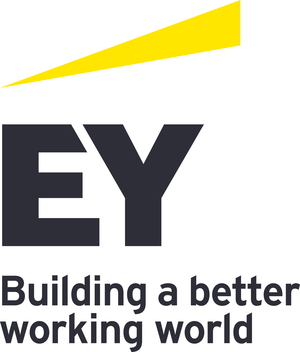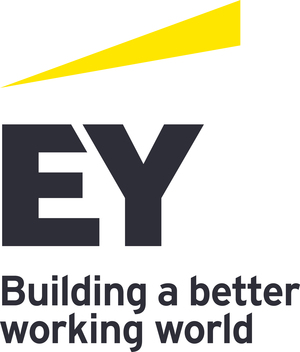
Eighty-four percent of employees are eager to embrace agentic AI in their role, but 56% worry about their own job security working alongside AI agents, highlighting an urgent disconnect
NEW YORK, Oct. 23, 2025 /PRNewswire/ -- Employees are ready and eager to adopt agentic AI, but organizations are fumbling the fundamentals of strategy, training and communication, according to new research from Ernst & Young LLP (EY US). The EY Agentic AI in the Workplace Survey reveals a paradox: while agentic AI optimism is high, confusion and anxiety threaten to stall this transformative period in the future of work. The research also uncovered how generational differences are creating a wide managerial divide on how to lead these new hybrid human-AI teams.
The survey, which polled more than 1,100 desk workers across six industries at companies with $1B+ in revenue in the U.S., found that 84% of employees are eager to embrace agentic AI in their roles, anticipating positive impacts on productivity, efficiency and work experience. Yet, more than half (56%) simultaneously worry about their own job security working alongside AI agents, and 51% worry that agentic AI will make their job obsolete.
This excitement-anxiety contradiction is compounded by a lack of guidance from leadership, and that tension is even sharper among non-people managers, 65% of whom worry about their own job security working alongside agentic AI compared to 48% of people managers. Amid a lack of adequate training, 85% of desk workers are learning about how to work alongside AI agents outside of work, and 83% say most of what they know about working with agentic AI is self-taught.
"Agentic AI moves us beyond simple prompts to autonomous, multi-step tasks, but our data reveals a critical threat: poor communication breeds operational uncertainty and inertia," says Dan Diasio, EY Global Consulting AI Leader. "Organizations must articulate their complete AI roadmap, covering everything from ethical guardrails to comprehensive training, to harness employee enthusiasm and drive performance. When leaders are transparent, employees lean in and performance follows."
The human readiness gap: enthusiasm meets an overwhelmed workforce
Agentic AI is already delivering tangible value, with 86% of employees reporting that working with AI agents has had a positive impact on their team's productivity. This proven success breeds confidence across the workforce: a vast majority (90%) of desk workers already using agentic AI are confident in their abilities to use AI agents today.
Despite these real-world gains, EY US research highlights persistent internal obstacles:
- Skills gap anxiety: Despite widespread enthusiasm, 54% of employees feel like they are falling behind their peers in agentic AI use at work. This feeling of being outpaced is amplified among non-people managers, where 61% feel they are falling behind their peers, compared to 48% of people managers.
- Information influx: Most desk workers feel overwhelmed by the constant influx of new agentic AI information (61%). Those who use agentic AI are overwhelmed by the amount of new agentic AI tools being introduced at their workplace (64%).
- Managerial confidence crisis: Lack of clarity from top leaders is impacting workers of all levels, with 53% of people managers concerned they may not be good at supervising AI-augmented teams, and 82% believing managing AI agents will make their experience as a people manager more challenging. Additionally, 63% of non-people managers are hesitant to pursue people manager roles due to concerns about managing AI-augmented teams.
"Our data reinforces that while the workforce is demonstrably ready for innovation-fueled change, this valuable AI enthusiasm is threatened by underlying anxieties," says Kim Billeter, EY Global People Consulting Leader. "We are at a critical juncture where leaders must provide structured and comprehensive training. This isn't just a technology rollout; it's a human transformation that requires intentional support to redefine the partnership between people and AI."
The new managerial map: charting generational differences in AI preparedness
The new EY US survey reveals how the challenges of leading hybrid human-AI teams are perceived differently across generations and worker experience levels, heightened by a growing generational divide among people managers on sentiment and perception surrounding agentic AI:
- Gen Z: Gen Z people managers display a mix of optimism and anxiety, as they (88%) are more likely than millennial people managers (77%) to believe their role at their organization will change entirely with the introduction of agentic AI. While 88% of Gen Z people managers also believe that agentic AI will have a positive impact on attracting top talent to their organization, 55% of those using agentic AI show greater hesitancy to use agentic AI tools introduced at their organization compared to baby boomer people managers (33%).
- Millennials: Millennial people managers express the highest level of worry, with 72% concerned about the challenges of managing an increasingly agentic AI-reliant workforce, a higher percentage than all other generations. However, millennial people managers are eager to learn, with a notable 88% stating that most of their knowledge of working with agentic AI is self-taught.
- Gen X : Gen X people managers demonstrate high confidence in collaborative models, with 93% agreeing that supervising an AI-augmented team will incorporate "the best of both worlds." They also prioritize encouraging collaboration between humans and AI agents as a necessary step for entry-level success in a future with full-scale agentic AI integration.
- Baby Boomers : Baby boomer people managers prioritize practical application and ethics, exhibiting a strong foundation grasp of AI agents (80%) and believe organizations should be emphasizing clear ethical guidelines for agentic AI use for senior leaders (57%) to set them up for success in a future with full-scale agentic AI integration.
Training and communication: strategic levers left unpulled
In the agentic AI era, investing in communication, training, and support leads to stronger adoption and better results, but latest EY US research found only 52% of senior leaders say their organization has a fully deployed initiative in investing in agentic AI training/upskilling for employees. Organizations that clearly articulate their agentic AI strategy also see significantly better business outcomes and higher employee confidence, confirming communication is a strategic lever for adoption:
- Drives productivity: At organizations clearly communicating its AI agent strategy, 92% of workers report working with AI agents has positively impacted their team's productivity, which is a 30 percentage point jump compared to those without clear communication. Employees at these organizations are also more likely to use agentic AI (66% vs. 39%) and are eager to embrace agentic AI in their role (87% vs. 69%) compared to those at organizations without clear communication.
- Bridges hierarchical disconnects: The communication gap is most severe for lower-level employees. About twice as many employees below the VP level (21%) as VP+ employees (9%) report their organization has not clearly communicated its strategy on AI agents.
- Alleviates learning burdens: While 89% of employees believe upskilling and reskilling is crucial for staying relevant in an AI-augmented workplace, over half (59%) cite a lack of adequate training to develop AI-related skills as an organizational barrier.
"The pace of agentic AI adoption is creating immense growth potential, but in this era of uncertainty, leaders must address the urgent need to rapidly innovate with a clear and focused agentic AI communication and training strategy that puts their employees at the center," says Whitt Butler, EY Americas Vice Chair – Consulting. "To realize the true transformative impact of agentic AI, companies must execute a human-centric strategy focused on managing change, building confidence across the entire hybrid workforce, and ultimately turning the risk of inaction into a decisive competitive advantage."
Methodology
Ernst & Young LLP (EY US), in collaboration with a third-party vendor, conducted an online survey among 1,148 US desk workers across six industries at companies with an annual revenue of $1b or more: banking and capital markets (n=188); wealth and asset management (n=172); consumer products (n=178); manufacturing, chemicals and industrial products (n=186); oil and gas (n=237); and technology (n=187). The survey was fielded between August 8 and September 3, 2025. The margin of error for the total sample at a 95% confidence interval is ±3 percentage points.
The total sample includes n=586 people managers/supervisors and n=562 non-people managers/supervisors, also broken out by generations: Gen Z: n=125 people managers/supervisors and n=129 non-people managers/supervisors, millennials: n=159 people managers/supervisors and n=154 non-people managers/supervisors, Gen X: n=154 people managers/supervisors and n=150 non-people managers/supervisors, baby boomers: n=148 people managers/supervisors and n=129 non-people managers/supervisors. The total sample also includes desk workers below VP level (n=902) and those at the VP level and above (n=246).
About EY
EY is building a better working world by creating new value for clients, people, society and the planet, while building trust in capital markets.
Enabled by data, AI and advanced technology, EY teams help clients shape the future with confidence and develop answers for the most pressing issues of today and tomorrow.
EY teams work across a full spectrum of services in assurance, consulting, tax, strategy and transactions. Fueled by sector insights, a globally connected, multidisciplinary network and diverse ecosystem partners, EY teams can provide services in more than 150 countries and territories.
All in to shape the future with confidence.
EY refers to the global organization, and may refer to one or more of the member firms of Ernst & Young Global Limited, each of which is a separate legal entity. Ernst & Young Global Limited, a UK company limited by guarantee, does not provide services to clients. Information about how EY collects and uses personal data and a description of the rights individuals have under data protection legislation are available via ey.com/privacy. EY member firms do not practice law where prohibited by local laws. For more information about our organization, please visit ey.com.
Ernst & Young LLP is a client-serving member firm of Ernst & Young Global Limited operating in the US.
SOURCE EY







Share this article